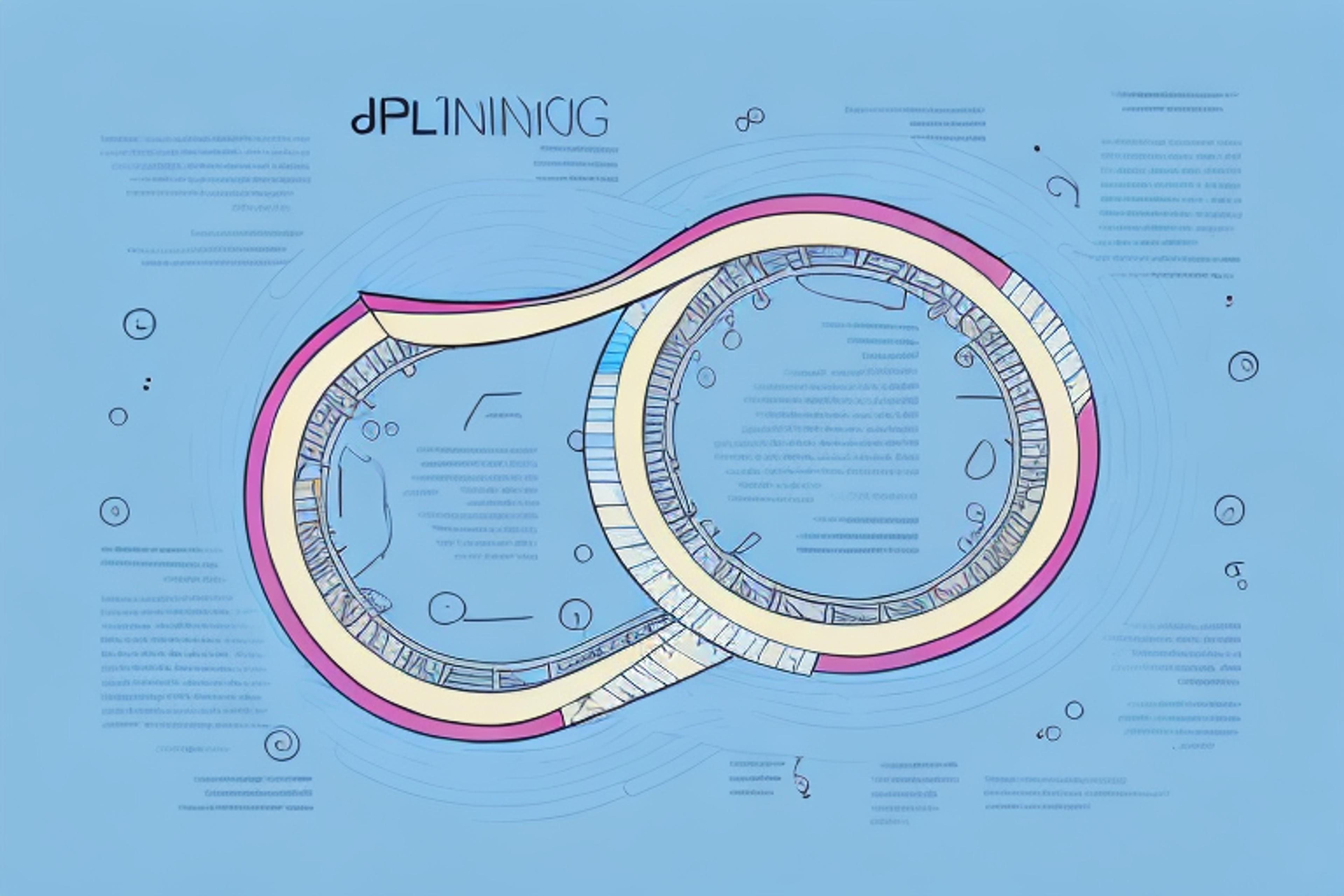How to Prepare for Roland Berger Management Consulting Case Interviews?
Are you aspiring to become a management consultant at Roland Berger? Our article provides you with valuable tips and strategies to prepare for the case interviews.
Posted April 10, 2025

Table of Contents
If you're considering a career in management consulting, then it's highly likely that you've come across the name 'Roland Berger' before. As one of Europe's leading consulting firms, Roland Berger is known for its challenging and rigorous case interview process. It's no surprise, then, that preparing for a Roland Berger case interview can be a daunting task. However, with the right approach and mindset, it's possible to succeed. In this article, we'll be covering everything you need to know about preparing for a Roland Berger case interview.
Overview of Roland Berger management consulting case interviews
Before we jump into the specific details of how to prepare for a Roland Berger case interview, it's important to have a basic understanding of what the interview process entails. In a Roland Berger case interview, you'll be presented with a business problem related to a real-world scenario. You'll then need to analyze the problem and provide recommendations that are both logical and structured. Throughout the interview, the interviewer will be evaluating your problem-solving skills, analytical abilities, and communication skills.
It's worth noting that Roland Berger case interviews typically last around 60 minutes, and may involve multiple rounds of interviews with different interviewers. Additionally, the cases presented may cover a wide range of industries and business functions, so it's important to have a broad understanding of business concepts and trends. It's also common for interviewers to ask follow-up questions to test your ability to think on your feet and adapt your approach as new information is presented.
Understanding the structure and format of Roland Berger case interviews
The Roland Berger case interview is designed to test your ability to think logically and systematically under pressure. In general, the interview will be broken down into 3 parts: the introduction, the case study, and the conclusion. During the introduction, you'll be given background information on the business problem. The case study will involve you asking clarifying questions and making assumptions to better understand the situation at hand. Finally, in the conclusion, you'll need to present your recommendations in a concise and organized manner.
It's important to note that the case study portion of the interview may involve both quantitative and qualitative data. You may be given financial statements, market research reports, or other relevant data to analyze. However, you may also need to consider more subjective factors such as company culture or customer preferences. The key is to approach the case study with a structured and analytical mindset, while also being flexible and adaptable to new information that may arise.
Common types of questions asked in Roland Berger case interviews
While every Roland Berger case interview is unique, there are some common types of questions that are often asked. These include industry analysis, market sizing, profitability analysis, operations optimization, and strategy formulation. It's important to have a general understanding of these topics and how they relate to the business world.
Another common type of question asked in Roland Berger case interviews is problem-solving. Interviewers may present a hypothetical business problem and ask you to come up with a solution. This tests your ability to think critically and creatively, as well as your problem-solving skills.
Additionally, behavioral questions may be asked to assess your personality, work style, and communication skills. These questions may ask about your past experiences, how you handle difficult situations, and how you work in a team. It's important to be honest and provide specific examples to demonstrate your skills and abilities.
Importance of practicing with sample cases before the interview
One of the most effective ways to prepare for a Roland Berger case interview is to practice with sample cases. There are many resources available online that provide case studies from previous interviews. By practicing with these cases, you'll become familiar with the format and structure of the interview. You'll also be able to identify any weaknesses in your problem-solving approach and work to improve them.
Moreover, practicing with sample cases can also help you build confidence and reduce anxiety before the actual interview. By going through the process of analyzing and solving a case, you'll feel more comfortable with the types of questions and challenges that may arise during the interview. This can help you stay calm and focused, allowing you to perform at your best.
How to find and use case interview preparation materials for Roland Berger
There are a variety of resources available for those looking to prepare for a Roland Berger case interview. The firm itself offers case preparation materials and advice on their website. Additionally, there are many consulting forums and websites that offer free case studies and advice on how to approach case interviews.
One of the best ways to prepare for a Roland Berger case interview is to practice with a partner or in a group setting. This allows you to receive feedback and learn from others who may have different perspectives and approaches to solving cases. Many business schools and consulting clubs also offer case interview workshops and practice sessions.
It's important to remember that while case interviews can be challenging, they are also an opportunity to showcase your problem-solving skills and strategic thinking abilities. Don't be afraid to ask clarifying questions, take time to think through your approach, and communicate your thought process clearly and confidently.
Tips for researching and analyzing industry trends for case interviews
As mentioned earlier, industry analysis is a common topic in Roland Berger case interviews. It's important to have a general understanding of the industry and market trends relevant to the problem at hand. Researching industry reports and news articles can provide valuable insights into the current state of the industry.
Another useful way to research industry trends is to attend industry conferences and events. These events provide an opportunity to network with industry experts and gain firsthand knowledge of the latest trends and innovations. Additionally, attending these events can help you understand the challenges and opportunities facing the industry, which can be useful in developing a comprehensive analysis for your case interview.
Strategies for structuring your approach to a Roland Berger case interview question
Having a structured approach to problem solving is essential in a Roland Berger case interview. One recommended method is the 'MECE' (Mutually Exclusive and Collectively Exhaustive) framework. This involves breaking down the problem into smaller, more manageable parts and systematically analyzing each one.
Another useful strategy is to ask clarifying questions at the beginning of the interview. This will help you to fully understand the problem and identify any potential areas of ambiguity. Additionally, it is important to prioritize your analysis and focus on the most critical aspects of the problem. This will help you to efficiently use your time and resources during the interview.
Techniques for effectively communicating your thought process during the interview
Effective communication is key during a Roland Berger case interview. You'll need to be able to clearly explain your thought process and reasoning behind your recommendations. One useful technique is to verbally 'walk through' your approach as you work through the case study.
Another technique is to use visual aids, such as diagrams or charts, to help illustrate your thought process. This can be especially helpful when explaining complex ideas or data analysis. Additionally, it's important to actively listen to the interviewer's feedback and questions, and adjust your communication style accordingly.
It's also important to be aware of nonverbal communication, such as body language and tone of voice. Maintaining eye contact, using confident body language, and speaking clearly and concisely can all help convey your ideas effectively. Finally, don't be afraid to ask for clarification or repeat information if needed, as this shows a willingness to collaborate and ensure understanding.
Key skills and qualities that Roland Berger looks for in candidates during the case interview process
In addition to analytical abilities and problem-solving skills, Roland Berger looks for candidates who can demonstrate strong communication skills, teamwork abilities, and cultural fit with the company.
Furthermore, Roland Berger values candidates who possess a global mindset and are able to think outside the box. The ability to adapt to new situations and work well under pressure is also highly regarded. Candidates who have experience in leadership roles or have demonstrated leadership potential are also preferred.
Success stories and advice from past candidates who have gone through the Roland Berger case interview process
Reading about the experiences of past candidates who have successfully gone through the Roland Berger case interview process can provide valuable insights and advice. Many consulting forums and websites offer forums and articles dedicated to sharing these experiences.
One common theme among successful candidates is the importance of preparation. Many candidates spend weeks or even months practicing case interviews with friends, family, or professional coaches. They also research the company and its values, as well as the industry and market trends relevant to the case they are given. Additionally, candidates often emphasize the importance of staying calm and confident during the interview, even when faced with challenging questions or unexpected twists in the case.
Common mistakes to avoid during a Roland Berger case interview
One common mistake that candidates make during a Roland Berger case interview is failing to ask enough clarifying questions. It's important to fully understand the problem at hand before attempting to solve it. Additionally, candidates may struggle with time management and fail to present a well-organized and cohesive solution.
Another common mistake that candidates make during a Roland Berger case interview is jumping to conclusions too quickly. It's important to take the time to analyze all the available information and data before making any assumptions. Candidates may also struggle with effectively communicating their thought process and reasoning behind their solutions, which can lead to confusion and misunderstandings with the interviewer.
How to handle unexpected or challenging questions during the interview
During a Roland Berger case interview, you may be presented with unexpected or challenging questions. It's important to remain calm and collected, and to approach the question in a logical and structured manner. It's also okay to ask the interviewer for clarification if you're not fully understanding the question.
How to follow up after a Roland Berger case interview to increase your chances of success
Following up with the interviewer after the interview can demonstrate your enthusiasm and commitment to the role. A simple thank-you email can go a long way in establishing a positive relationship with the interviewer.
Conclusion
Preparing for a Roland Berger case interview may seem daunting, but the key is to approach the process with a positive attitude and a willingness to learn. By utilizing the resources available and practicing with sample cases, you can increase your chances of success in the interview. Remember to stay calm, communicate clearly, and approach the problem systematically. With these techniques, you'll be ready to tackle any case study thrown your way.




















